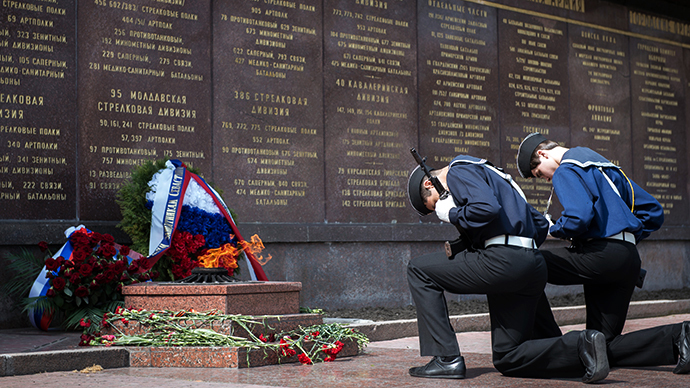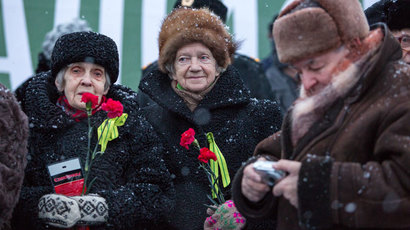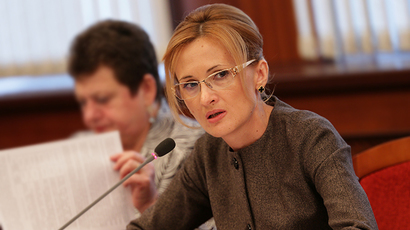Duma passes bill criminalizing rehabilitation of Nazism

The Russian Lower House has approved a bill that provides up to five years in prison for denying the facts set out in the Nuremberg Trial, rehabilitation of Nazism and distributing false information about the actions of Russia and its allies during WWII.
The bill has been drafted by a group of MPs representing various parliamentary caucuses but its main sponsor was the head of the Lower House committee for security and countering corruption Irina Yarovaya (United Russia).
Yarovaya told the press that the push for such a law is especially evident today in times of the violent political crisis in Ukraine, launched and supported by radicals and neo-Nazis. “Ukraine is a living witness of what can be the result of such a policy, when Nazism is standing tall and manifests itself not only through propaganda but through actual crimes,” the lawmaker said.
Once the bill is signed into law it will become illegal to publicly deny the Nuremberg Tribunal verdict and the anti-Hitler coalition’s effort to defend international peace and security during the Second World War. The ban also extends to knowingly spreading false reports about the crimes of anti-Nazi armies during the war and the fabrication of proof of such crimes.
Those convicted face fines of up to 300,000 rubles (about $8300) or prison terms of up to 3 years. The use of public office or the media raises the maximum punishment to 500,000 roubles in fines or up to 5 years behind bars with a ban from certain posts and professions for another 3 years.
The bill has drawn some criticism from Russian non-parliamentary opposition and international organizations.OSCE's Representative on Freedom of the Media pointed at the possibility of its narrow application that could lead to abuse and suppression of free speech on issues of history.
Russia’s Foreign Ministry blasted this statement as intervention into another nation’s legislative process. The bill’s sponsors also refuted all criticism and said that that many foreign nations, such as Germany, Austria and France already had similar legislation protecting the historical truth as stated by the Nuremberg Tribunal.














